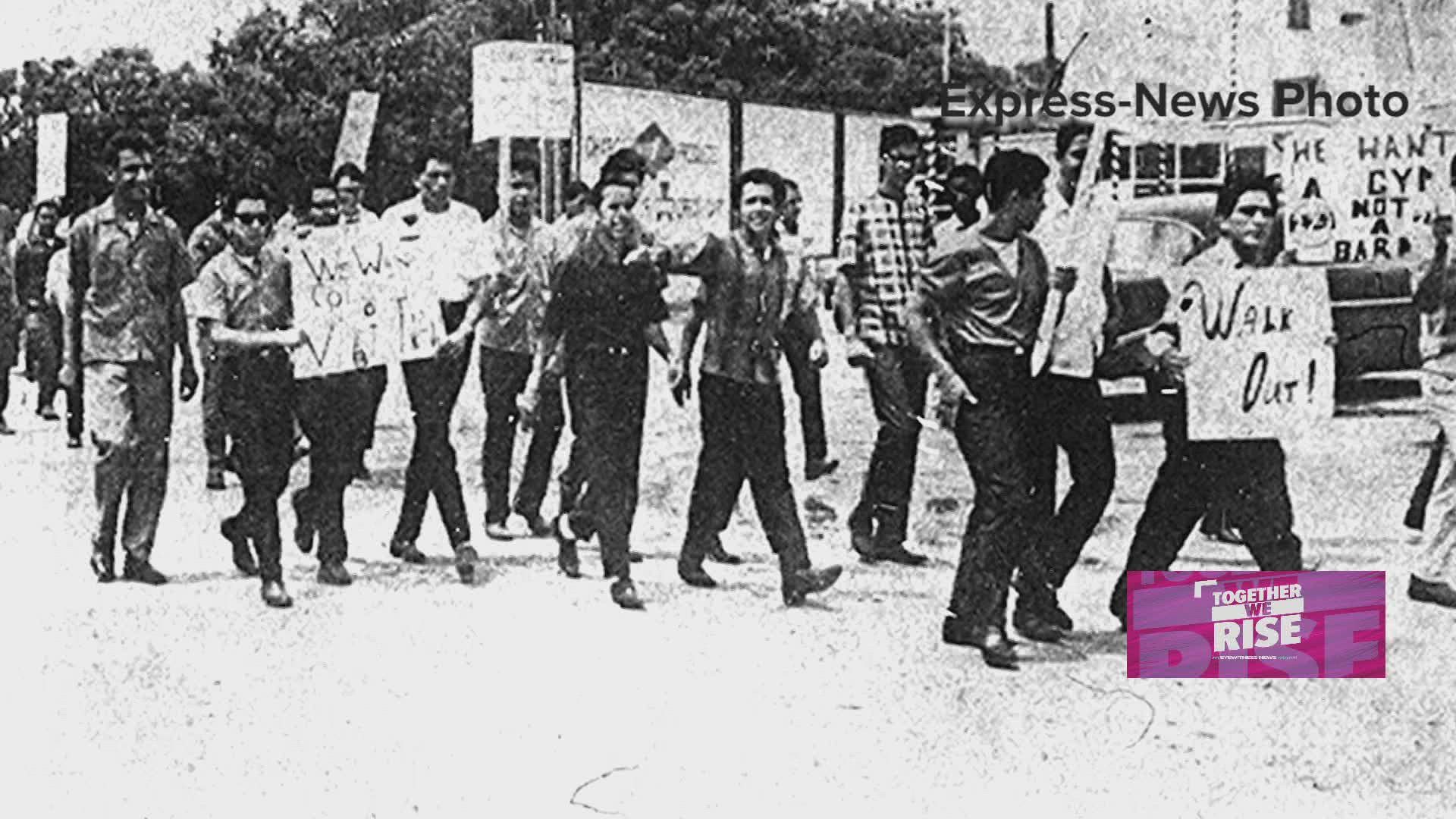SAN ANTONIO — In 1968, Mexican-American students across the country walked out of their classrooms in protests of discrimination and inequities on school campuses.
Director of UTSA's Mexico Center and an Associate Professor of History, Jerry B. Gonzalez, Ph.D., spoke with KENS 5 about the 'Chicano Blowouts' or '1968 Walkouts' and their historical context.
“The ’68 Walkouts were a dramatic expression of the unrest in the barrios throughout the southwest; California, Texas, Colorado and even up into Chicago and the northwest. It was a vocal and spectacular response to generations of racism, poverty, illiteracy and hunger," Dr. Gonzalez said.
The movement reached Texas and San Antonio.
On May 16th, Edgewood High School students, many of them Hispanic, organized and walked out of school.
“I never will forget,” Edgewood Alumni Linda Mack Love said.
Many of the then-juniors and seniors exercised the very lessons they learned in their classrooms.
“We had been talking about inequality and hearing over and over and over," Love said. "As I recall that Edgewood was the poorest district in the state of Texas, but that was the reason I walked out.”
A lack of basic resources in the classroom, and the yearly dismissal of their request for better, pushed these students to action.
“We were upset that our bathroom were always unkept, clean, we didn’t even have toilet paper when we needed it," Edgewood HS Alumni, Rosendo Gutierrez said. “We saw a lot of things that other schools had that we didn’t have at Edgewood.
Edgewood Alumni, Diana Herrera, who was a junior in 1968, remembers what her senior class fought for.
"When they started to do their homework... They are the ones that discovered that many of our teachers were not certified were not degreed," Edgewood Alumni Diana Herrera said. “[The teacher's] hearts were there but they were not degreed, they were not certified, so we were still lacking in the quality of education we were receiving."
Students deciding then to take action.
This group of seniors' small movement, reached classmates and led to close to 500 students walking out of Edgewood High School.
“The thing about it is Mexicanos, Chicanos, whatever you want to call us, we were taught through our parents to be accepting. This is what you have...no complaining," Edgewood Alumni Richard Herrera said. “And I explain to a lot of people, at that particular decade, America was on fire, so what example did we have but to protest and to march, and that’s basically what we did. I believed in the idea and I believed in the outcome."
“What happens in ‘68 is really the students themselves taking the mantle for activism in their own hands. Calling out school administrators for their racist practices, calling out the curriculum of its neglect and denial of the Mexican experience in the United States," Dr. Gonzalez said.
Their grievances not going unnoticed by the community.
“Then the parents came around. We had parents who supported us and some of the parents were willing to put the case into play. That was an accomplishment that we had no idea that that was going to occur," Edgewood HS Alumni, Rosendo Gutierrez said.
The court case going all the way to the United States Supreme Court and changing Texas education funding through what's been widely known today as the "Robin Hood" plan. That's the policy where money is taken from wealthier districts and dispersed to poorer districts.
However, it's a case that in many people's eyes, still has not been won
“I think it’s important that people do recognize is that the struggles that went into creating equity in the educational is real. Those were actions of regular people," Dr. Gonzalez said. “That’s the power of the history there, right? Is that these are communities that are moving together to create some kind of change."
A change in school funding, still being fought today, in what now being called the digital divide.
More background on the Edgewood cases
According to the Texas State Historical Association, Rodriguez v. San Antonio ISD is a landmark case led by Edgewood parents in which a federal district court found Texas school funding unconstitutional
The state appealed this ruling in the United States Supreme Court. The court siding with the state.
But the fight would not end there.
IN 1984, Edgewood ISD v. Kirby, would be another turning point.
In this case the Mexican American Legal Defense and Educational Fund would sue the then commissioner of education, William Kirby, on behalf of those Edgewood parents and others who believed there were inequities in the way poorer districts were funded.
Between 1987 and 1989 the case would go through several appeals, but by 1990 the state would come up with the "Robin Hood" plan, where richer districts would give funding to poorer ones.
While plans have been issued regarding state funded schools, the issue of equal school funding is still being challenged today.
-Texas State Historical Association, Handbook of Texas

